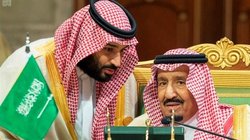 The United Nations Children’s Fund (UNICEF) says 27 children have been killed or wounded in Yemen over the past 10 days.
The United Nations Children’s Fund (UNICEF) says 27 children have been killed or wounded in Yemen over the past 10 days. RNA - According to UNICEF’s executive director, Henrietta Fore, “Seven children between the ages of four and 14 were killed on Friday in an attack on a fuel station in the Mawiyah district, in the southern Yemeni city of Taiz. This attack brings to 27 the number of children killed and injured in a recent escalation of violence near Sanaa and in Taiz over the past 10 days.”
However, the actual death toll is always higher than the numbers provided by the UN. This is because nowhere is safe for children in Yemen. The conflict is haunting them in their homes, schools and playgrounds. And this has nothing to do with Iran, as the Trump administration would like to suggest.
Contrary to Trump administration claims, not everything in the region is about Iran. The conflict in Yemen continues decades of internal strife. Saudi Arabia’s invasion internationalized a decade-long domestic and regional fight. Riyadh’s hubris gave the US an opportunity to bleed the Yemenis militarily, too.
Saudi Arabia is ruled by an immature authoritarian despot. His misadventures are legendary: the murder and dismemberment of a self-exiled journalist in a Saudi consulate; the brazen kidnapping of Lebanon’s prime minister; a busted campaign to isolate and invade Qatar; and a promised speedy invasion of Yemen that transformed into four years of war and murder.
Washington should draw a line at Yemen. So far, unfortunately, the Trump administration remains committed to backing Riyadh in a murderous war against one of the world’s poorest nations, incompetently waged to restore a Saudi and Emirati puppet regime to power. The result has been a humanitarian catastrophe. The state-orchestrated murder of journalist Jamal Khashoggi finally energized Congress to challenge President Trump on the issue, though GOP congressional leaders worked to protect the bloody royal regime in Riyadh. Yet, all the media hype run by the Congress about the necessity of punishing Saudi Arabia and the MBS proved to be a show since not even one single tangible action has been taken in this regard. On the contrary, the US administration sold $8.1 bln of arms to the Saudis last week!
The issue has also heated up at the United Nations. The world body should force the US to leave the Yemen war. American officials have pretended that Washington is not a combatant. However, the US has provided targeting intelligence, sold munitions and refueled Saudi aircraft. The UN knows that the US has provided essential combat support in a countrywide bombing campaign targeting weddings, funerals, and much in between, thereby killing tens of thousands of civilians. American officials are to blame and the UN should hold them to account for complicity in Saudi war crimes.
At any rate, after four years Washington still has no security interest at stake in Yemen. The arguments typically made for US involvement and complicity are bootstrapped from responses to Riyadh’s and Abu Dhabi’s initial aggression; an aggression which was entirely unnecessary since, historically, money and patronage had guaranteed Saudi interests. These days, Yemeni missile attacks on cities in Saudi Arabia and ships in the Gulf of Aden are retaliation for US-backed Riyadh’s attacks on Yemeni targets, many civilian.
According to Fars News Agancy, the Pentagon regime’s claim that aiding Riyadh’s war reduces civilian casualties is risible: The UN says over sixty thousand civilians have been killed, most in Saudi coalition airstrikes. Nearly half the population needs aid; a million people have contracted cholera; famine stalks much of the land; civilian infrastructure, primitive to start, has been wrecked. The number of dead from malnutrition approaches one hundred thousand. Emirati and Saudi interests are illicit, with Abu Dhabi promoting separatism in the South, making a peaceful, stable settlement even more difficult.
Which has left the Trump administration and its congressional servants, paraphrasing Secretary Mike Pompeo, to blame Iran. Yet in reality, Riyadh was pushing for hegemonic and colonial objectives, and not the interests of the international community, when it started the war.
The ongoing peace talks offer some hope, though. They have advanced further than previous attempts, and have reached some positive agreements, such as prisoner exchange, though implementation remains. The fact that Western nations have turned against the war as well should encourage the UN to start forcing Saudi Arabia and its allies to hold up their end of the bargain and comply with their obligations and also stop bombing civilians in Yemen before anyone could think of a more enduring peace.
So long as Riyadh can count on a blank check from Washington, it has no reason to temper its policy. The time is now for Washington to end its complicity or bear the full burden of what amounts to imperial warmongering. Only an end to the war can bring lasting relief to the children of Yemen. But until then, the international community must continue to put pressure on Riyadh, the UAE, the US and their allies to urgently address the humanitarian crisis. Yemen's Ansarullah Movement has complied with its undertakings under the deal and the whole world is waiting to see if the Saudis and their allies would eventually stop defiance and take action to let peace happen after four years, and the international community should ensure a harsh punishment if they wouldn't.
847/940